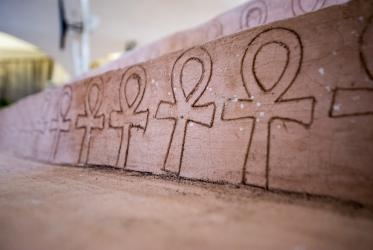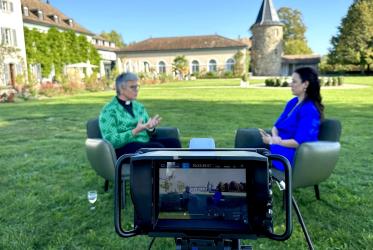The webinar was fourth in a series that analyses some 80 responses to the convergence document “The Church: Towards a Common Vision,” published in 2013.
The series, which will comprise eight webinars, is being produced by the commission’s study group on ecclesiology. With the first three webinars already held in 2021, the remaining will take place in 2022 leading up to the WCC 11th Assembly in Karlsruhe, as well as in 2023 to pursue the reflection on key themes coming from responses.
Rev. Dr Glenroy Lalor, Jamaica Baptist Union and a Faith and Order commissioner, explained the role of the commission in undertaking theological studies.
He also described how, between 2015 and 2020, the study group of Faith and Order commissioners working on ecclesiology met regularly to read, analyse and reflect together on the responses to “The Church: Towards a Common Vision” received. They identified 16 key themes or issues often raised by the responses, and produced papers on each of these.
“In seeking to draw churches into conversation and study, the text was sent to churches worldwide seeking responses,” explained Lalor.
Bishop Maxim (Vasiljevi ́c), Serbian Orthodox Church and a Faith and Order commissioner, said: “There is a common understanding that sacramentality is one of the basic features of the church.”
Dr Prof. Georgios D. Martzelos, Church of Greece and a Faith and Order Commissioner, reflected on how churches vary in their views of sin. “Those who perceive the church theologically as the body of Christ believe that the church can never sin and has never sinned,” he said, in contrast to those who perceive the church as a divine human community.
The general secretary of the Lutheran World Federation, Rev. Anne Burghardt, offered a response to the speakers. “It cannot be denied that the term ‘sacrament’ differs not only between different church communities and denominations but even within one communion itself,” she said.






